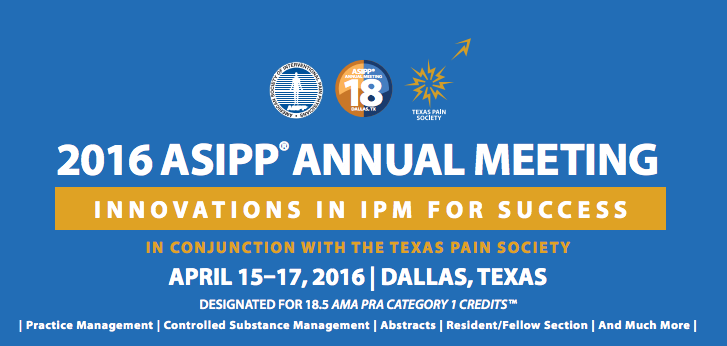All of our physician partners work hard everyday to insure that their patients receive the highest quality care in the safest, most cost effective environment. The ASC outpatient model is a great method for achieving this goal.
All of us here at Regent would like to congratulate ten of our physician partners who were recognized among 106 Physician Leaders in the ASC Industry by Becker’s ASC Review. Their hard work helps our industry, as well as the Regent Surgical Health partner facilities, achieve the great outcomes we are known for.
Douglas R. Dodson, DO. Dr. Dodson practices orthopedics at Alamogordo Orthopaedics and Sports Medicine in New Mexico, where he works with patients ranging from professional athletes to “weekend warriors” to child soccer players. Dr. Dodson earned his DO from Western University of Health Sciences in California and completed his orthopedic surgery residency at Michigan State University. He also undertook a fellowship in joint replacement surgery at Thomas Jefferson University. His special interests include hip and knee reconstruction, back pain, arthritis, foot and ankle disease, work-related injuries and anterior cruciate ligament injuries. In the Alamogordo community, he participates in local health lectures and coaches amateur sports teams. Dr. Dodson is the former chief of staff of Gerald Champion Memorial Hospital and serves on the board of directors for Alamogordo Physicians Cooperative. He is a member of the American Osteopathic Association, the American Osteopathic Academy of Orthopaedics and the New Mexico Orthopaedic Association.
James L. Fox, Jr., MD. Dr. Fox is the founding leader of the Ravine Way Surgery Center in Glenview, Ill., and practices at the Illinois Bone & Joint Institute. He is a board-certified orthopedic surgeon who has been practicing for more than 20 years. His clinical interests include general orthopedic surgery, including fracture care and arthroscopy, as well as orthopedic oncology. Dr. Fox received his medical degree from Columbia University College of Physicians and Surgeons in New York. He completed a fellowship in orthopedic oncology at Sloan-Kettering Memorial Cancer Center in New York, and joint replacement at Rush Presbyterian St. Luke’s Hospital in Chicago. He completed his residency with, and serves as assistant professor and associate clinical professor at, Northwestern University Medical School in Evanston, Ill. He also holds an instructor position at Rush Presbyterian St. Luke’s Medical Center in Chicago, Ill.
Eric J. Freeh, DO. Dr. Freeh practices orthopedics at Alamogordo Orthopaedics and Sports Medicine in New Mexico. As the former team physician for the Phoenix Suns professional basketball team, he has the experience to provide his patients with “the finest orthopedic care possible,” according to the center’s website. Dr. Freeh earned his DO from Oklahoma College of Osteopathic Medicine and Surgery and completed an internship at Hillcrest Osteopathic Hospital. He also undertook an orthopedic surgery residency at Botsford General Hospital in Farmington, Mich. Dr. Freeh specializes in trauma surgery, shoulder injury and osteoporosis and has successfully treated thousands of fractures. In addition to his clinical work, he serves as an examiner for the American Osteopathic Board of Orthopaedic Surgery, is a member of the International Society for Clinical Densitometry and is a faculty member at the Association for Study of Internal Fixation.
Scott E. Glaser, MD, FIPP. Dr. Glaser is a well-respected pain specialist and founder of the Pain Specialists of Greater Chicago in Burr Ridge, Ill. He serves as director on the national board of the American Society of Interventional Pain Physicians and was heavily involved in the lobbying efforts required to ensure passage of the NASPER bill and still works closely with the Illinois Department of Health and the chief pharmacist to implement the program in Illinois. Dr. Glaser was one of the first instructors selected by the International Spinal Intervention Society, the first society to provide training by experts in the performance of spinal injections. As an instructor, he teaches other physicians minimally invasive spinal procedures on cadavers at national courses. He also presents continuing medical education lectures at ASIPP meetings. Dr. Glaser received his medical degree from Indiana University School of Medicine in Indianapolis. He completed his anesthesia residency and fellowship at Northwestern University Medical School in Chicago.
James J. Lynch, MD, FACS. Dr. Lynch is the president, founder and CEO of SpineNevada based in Reno, Nev., and he also serves as the director of spine service for Regent Surgical Health. He is a board-certified neurological surgeon with 18 years of experience who specializes in complex spine surgery, cervical disorders, degenerative spine, spinal deformities, trauma, tumor infection and minimally invasive spine surgery. He is on staff at St. Mary’s Hospital and Renown Medical Center, both located in Reno. He is one of only a handful of spine surgeons with three fellowships in the specialty of spine surgery and has been published in leading journals including Spine: Journal of Neurosurgery and Neurosurgery. Dr. Lynch is a frequent lecturer at national meetings on spine topics related to ASCs. He earned his medical degree from Trinity College in Dublin, Ireland, and completed a residency at the Mayo Clinic in Rochester, Minn. Dr. Lynch completed spine fellowships from Mayo Clinic, Queen Square in London and Barrow Neurological Institute in Phoenix, Ariz.
David J. Raab, MD. Dr. Raab is the founder, president and CEO of the Illinois Sports Medicine & Orthopedic Surgery Center in Morton Grove, Ill., and an orthopedic surgeon with Illinois Bone and Joint Institute in Des Plaines, Ill. He specializes in orthopedic surgery in sports medicine, total joint replacement and arthroscopy, among other areas of interest. He holds an academic appointment as assistant professor of clinical orthopedic surgery at Northwestern University Medical School. Dr. Raab received his medical degree from Northwestern University Medical School in Chicago and completed his internship and residency in orthopedic surgery at Northwestern. He completed a fellowship in sports medicine at the Minneapolis Sports Medicine Center.
Herbert Riemenschneider, MD. Dr. Riemenschneider is the principal physician at Riverside Urology and the founder of Knightsbridge Surgery Center, both in Columbus, Ohio. He is a urologic surgeon, a dedicated patient advocate and an innovator in delivering superior urologic care. He currently is a member of the faculty at Ohio State University in Columbus, clinical assistant professor of Urology at OSU’s College of Medicine and director of urologic education at Riverside Methodist Hospitals. A local pioneer in cryosurgical ablation for treatment of prostate cancer, he performed the first prostate cryoablation in Ohio. Dr. Riemenschneider received his medical degree from the OSU College of Medicine and completed his residency in urology at Indiana University in Indianapolis.
Kent Sasse, MD, MPH, FACS. Dr. Sasse is one of the leading bariatric physicians in the country, serves as the director of the Western Bariatric Institute in Reno, Nev., and is an attending surgeon at several hospitals in the area. He is the founder of the International Metabolic Institute, which seeks to bring individuals state-of-the-art medical and scientific principles of physiologic weight reduction. Dr. Sasse is the author of two recent books titled Life-Changing Weight Loss and Doctor’s Orders: 101 Medically Proven Tips for Losing Weight. He received his medical degree from the University of California, San Francisco, a master’s in health and medical sciences at UCSF-UC Berkeley Joint Medical Program and an MPH in epidemiology from UC-Berkeley School of Public Health. Dr. Sasse completed his residency at the UCSF department of surgery and his fellowship at the Lahey Clinic department of colon and rectal surgery in Burlington, Mass.
Jeffrey L. Visotsky, MD, FACS. Dr. Visotsky is a member of Illinois Bone and Joint Institute and founder of the Morton Grove (Ill.) Surgery Center. He is a board-certified orthopedic surgeon and specializes in conditions of the hand, elbow and shoulder, arthroscopy shoulder/elbow, shoulder reconstruction and replacement, among other areas. Dr. Visotsky serves as assistant professor of orthopedic surgery at Northwestern University in Chicago and an instructor in the physicians assistant department of the Finch University of Health Sciences Chicago Medical School. He also holds a position as a special consultant in the division of specialized care for children at the University of Illinois in Chicago, specializing in hand and upper extremity care. He received his medical degree from Northwestern University and completed his residency in orthopedic surgery at McGaw Medical Center in Chicago and his fellowship in hand and upper extremity microsurgery at the Baylor College of Medicine in Houston.
Robert Welti, MD. Dr. Welti is the corporate medical director and Senior Vice President, Operations, for Westchester, Ill.-based Regent Surgical Health. He served as the medical director and administrator of the Santa Barbara (Calif.) Surgery Center and was affiliated with Santa Barbara Cottage Hospital for 20 years. He has worked in both hospital-based surgery centers and smaller physician-owned ASCs. A board-certified anesthesiologist, Dr. Welti earned his medical degree from Stanford (Calif.) University School of Medicine, where he also served his internship and residency and completed his fellowship in cardiothoracic anesthesia at Emory University Hospital in Atlanta.







